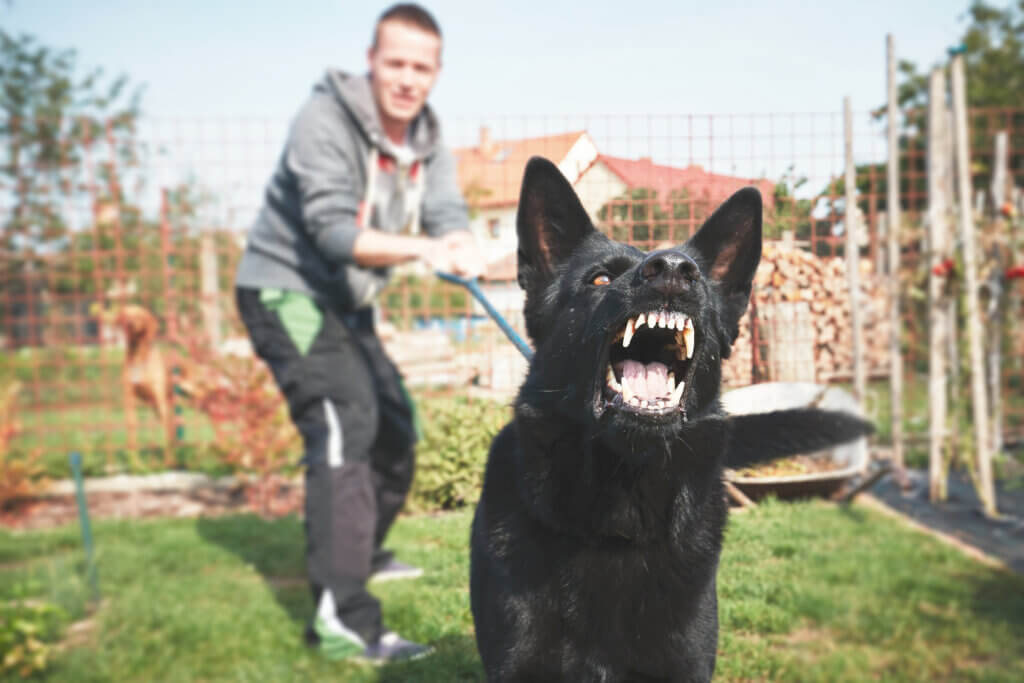Understanding Dog Bite Laws in Nevada: What You Need to Know

Picture This: A Bite on Your Morning Jog
Imagine you’re out for a morning jog in your Las Vegas neighborhood when a dog darts from a yard and sinks its teeth into your leg. You’re shocked, in pain, and unsure of what to do next. Or maybe you’re a dog owner in Reno, wondering what could happen if your furry friend bites someone.
Whether you’re the victim or the owner, Nevada’s dog bite laws affect you—and they’re not as straightforward as you might think. Let’s break them down in a way that’s easy to grasp without feeling like you’re wading through a legal textbook.
Does Nevada Follow the “One-Bite Rule?”
You’ve probably heard of the “one-bite rule,” a concept that suggests dog owners can’t be sued if it is only their dog’s first bite, nor would the owner be responsible unless they knew the dog was trouble. Some states stick to this old-school rule, but Nevada? Not quite.
The law doesn’t let dogs off the hook that easily. Instead, it focuses on whether the owner was negligent. That means even if it’s the dog’s first bite, the owner could still be liable if they didn’t take reasonable steps to prevent it. This approach protects victims more than the traditional rule.
How Nevada Decides Dog Bite Cases
So, what does it take to hold a dog owner accountable in Nevada? It usually comes down to proving three things:
- The dog had a history of aggressive behavior. This could include growling, lunging, or snapping—not just biting.
- The owner knew (or should have known) about the dog’s behavior. Repeated complaints, warning signs, or blatant aggression all matter.
- The owner’s negligence caused the bite. Allowing an aggressive dog to roam freely or failing to repair a broken fence can indicate carelessness.
Nevada law expects owners to act responsibly; if they ignore red flags, they could be held liable.
Building Your Case: What Counts as Evidence
You’ll need proof that the owner acted negligently to succeed in a dog bite claim. Strong evidence might include:
- Witnesses: Anyone who saw the dog act aggressively before can support your case.
- Official reports: Animal control or police records showing past incidents are gold.
- Complaints: Neighbors who’ve voiced concerns about the dog can bolster your claim.
- Photos/videos: Doorbell cam footage or visible warning signs help show the owner was aware.
- Leash violations: A dog off-leash in a public area is a big red flag.
Social media posts joking about the dog’s aggression can be helpful evidence. The more you show the owner should’ve known, the stronger your case.
When Dog Owners Might Not Be Liable
Not every dog bite results in legal liability. Nevada law makes exceptions, such as:
Provocation
If you teased, hit, or provoked the dog before it bit, the owner might not be responsible. Courts recognize that even docile dogs can react defensively.
Trespassing
Your claim might not hold up if the bite occurred while you were illegally on someone’s property. Property rights are a key factor here.
Breaking Up a Fight
Liability can be tricky in cases where someone is bitten while trying to stop a dog fight. The aggressive dog’s owner may still be held accountable, but context matters.
Insurance and Compensation After a Dog Bite
Payouts for most dog bite injuries are made through the dog owner’s homeowners’ or renters’ insurance. Compensation can cover:
- Medical costs: Emergency care, stitches, medication, or even reconstructive surgery are all factors..
- Lost wages: You may potentially claim reimbursement if injuries keep you from working.
- Pain and suffering: Your pain, both physical and emotional, is factored in.
- Scarring: Permanent marks can affect confidence and quality of life.
However, insurers often fight these claims to downplay your injuries or shift blame. Having a lawyer and solid documentation helps counter these tactics.
Act Fast: Nevada’s Two-Year Deadline
Nevada law allows you to make a legal claim for up to two years from the date of the dog bite. This includes your right to file a personal injury lawsuit. If you miss this window, your right to compensation could disappear even if your case is strong.
That’s why it’s critical to begin collecting evidence and seeking legal guidance early.
Your Game Plan After a Dog Bite
If a dog bites you, here’s what you should do immediately:
- Seek medical care. Even minor wounds can become infected.
- Report the bite. File a report with animal control or local authorities.
- Document everything: Take photos of your injuries, the dog, and the location.
- Get owner details: Name, phone, address, and insurance information.
- Identify witnesses: Their statements could support your version of events.
- Call a lawyer: You shouldn’t have to try to figure out the complicated nature of Nevada dog bite laws on your own.
Final Thoughts: Knowing the law means protecting yourself
Suffering a dog bite means being subjected to pain and trauma, and the confusing law surrounding it. Nevada’s dog bite laws protect victims while expecting owners to take responsibility for their pets.
Whether you’re healing from an injury or worried about your dog’s behavior, knowing your rights,and acting quickly make the difference. Don’t let uncertainty or delay cost you the compensation or peace of mind you deserve.
When in doubt, consult with a qualified Nevada personal injury attorney. They’ll help you navigate the process and fight for what’s fair.
About The Author: Paul Padda is the managing attorney of Paul Padda Law, a premiere personal injury law firm with offices in Las Vegas and Chicago. If you’ve been injured due to the negligence of another, get in touch with us today and get the help you deserve.
